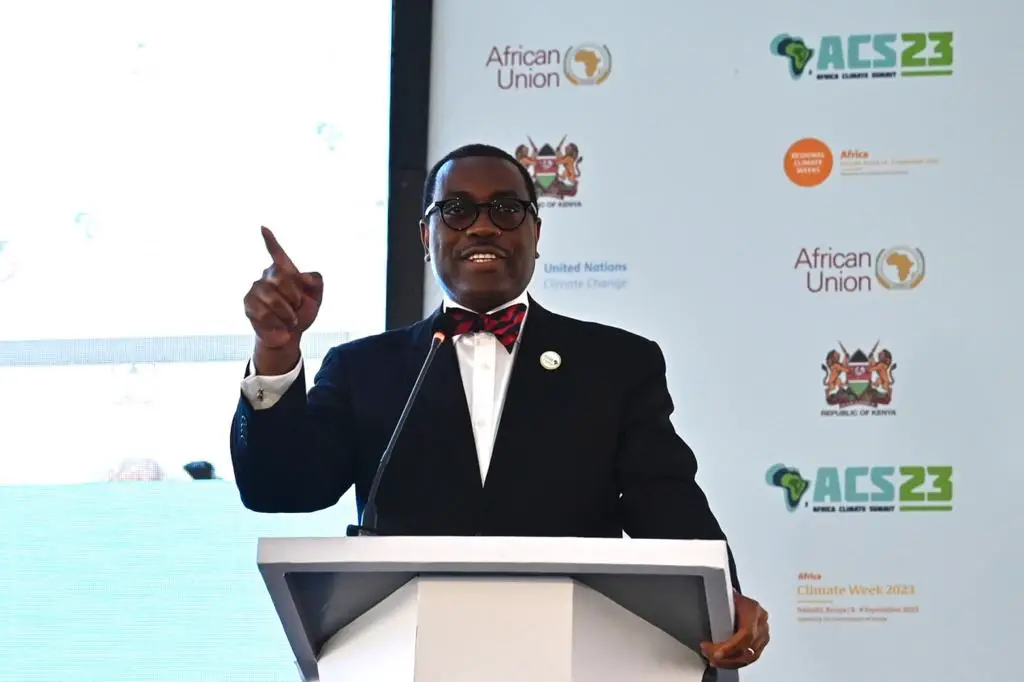- AfDB’s Africa Climate Risk Insurance Facility for Adaptation will insulate the agricultural sector against losses.
- The product will boost countries’ preparedness, adaptation, and resilience against flooding, drought, and famine.
- The facility will contribute to building the data needed for robust early warning systems across Africa.
In a world gripped by the urgent need to address climate change, Africa stands out as a continent that emits the least carbon yet bears the brunt of its consequences. The recently concluded Africa Climate Summit shed light on this paradox and ignited a crucial initiative by the African Development Bank: the ‘Africa Climate Risk Insurance Facility for Adaptation (ACRIFA).’
This insurance programme aims to introduce a disaster relief insurance system to shield African nations from the ravages of catastrophic weather-related events.
Insurance armor against climate crisis
Agriculture, the lifeblood of many African economies, finds itself in the crosshairs of climate change. ACRIFA’s mission is clear: to insulate African countries by bolstering their agricultural sectors.
Through a holistic approach encompassing preparedness, adaptation, and resilience-building, ACRIFA seeks to fortify nations against the adverse effects of climate change, from devastating floods to crippling droughts and famine.
At the Africa Climate Summit in Nairobi, African Development Bank Group (AfDB) President Akinwumi Adesina unveiled this adaptation facility, backed by an initial commitment of $1 billion in concessionary high-risk capital and grants.
Dr Adesina emphasized the necessity of scaling up support to protect nations and households against the increasingly severe weather patterns that threaten their livelihoods.
The disproportionate impact of extreme weather on Africa’s farmers, a majority of whom are women, is a pressing concern. Access to crop and livestock insurance becomes paramount in addressing this issue.
ACRIFA strives to provide this essential lifeline to safeguard the continent’s food security and the well-being of its people.
The World Health Organization (WHO) underscores the dire consequences of climate change on health, particularly in developing countries. Adverse effects ripple through the social and environmental determinants of health, jeopardizing clean air, safe drinking water, sufficient food, and secure shelter.
Disturbingly, data from Statista reveals that Africa endured approximately 1,700 natural disasters between 1970 and 2019, resulting in over 730,000 deaths, with droughts accounting for a staggering 95 per cent of fatalities.
Climate change-related malnutrition
The WHO estimates a grim trajectory, projecting an additional 250,000 deaths annually between 2030 and 2050 due to climate change-related malnutrition, malaria, diarrhoea, and heat stress. The direct damage costs to health could reach $2-4 billion per year by 2030.
Today, East Africa grapples with its worst drought on record, while extreme heat scorches northern Africa, and flash floods remain a constant threat across the continent. The root of this crisis lies in long-term shifts in temperatures and weather patterns fueled by greenhouse gas emissions.
Agricultural productivity, upon which more than half of Africa’s population depends, faces a bleak future. Climate change shortens plantation periods, increases the frequency of extreme weather events, depletes existing water resources, and fosters the proliferation of insects and pests.
ACRIFA enters the scene with a promise to raise an initial $1 billion in high-risk capital and grants to facilitate the development and adoption of insurance solutions. Dr. Beth Dunford, African Development Bank Vice President for Agriculture, Human, and Social Development, emphasizes the urgency of action, highlighting that a thriving climate insurance industry isn’t merely about policies but about preserving lives and enabling Africa to thrive amidst climate uncertainties.
Furthermore, ACRIFA extends credit insurance to investment portfolios related to climate, agri-food systems, and enterprise development. It engages primary insurers across Africa to ensure a seamless flow of business opportunities to continental and international reinsurers. The facility also supports national governments in efficiently managing climate disasters.
Climate crisis hindering tourism potential
Comoros President Azali Assoumani, Chair of the African Union, hails ACRIFA as a necessary innovation, especially in the face of growing challenges like floods and droughts that affect agriculture and resilience.
He cites the severe climate risks that Comoros faces, hindering its tourism potential and exacerbating the harsh realities of climate change.
Partnerships with organizations like the World Food Programme are set to expand insurance coverage for farmers, injecting trust into the market and unlocking private sector capital.
Martin Frick of the World Food Programme expresses excitement about ACRIFA’s potential to make a difference in the lives of farmers who need it most.
Ibrahima Diong, Director-General of the African Risk Capacity Group and United Nations Assistant Secretary-General, underscores that ACRIFA goes beyond premiums; it’s about proactive risk transfer.
The facility will contribute to building the data needed for robust early warning systems across Africa, ensuring that nations are better prepared for the challenges posed by a changing climate.
ACRIFA emerges as a beacon of hope in Africa’s climate resilience journey, offering not just insurance but a lifeline for a continent determined not only to survive but to thrive amidst climate uncertainties.
Read More: AfDB Unveils $1Bn Fund to Power Youth-Led Climate Innovation
